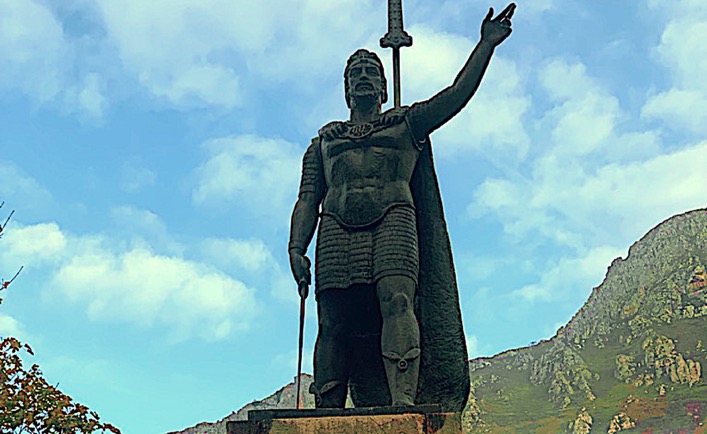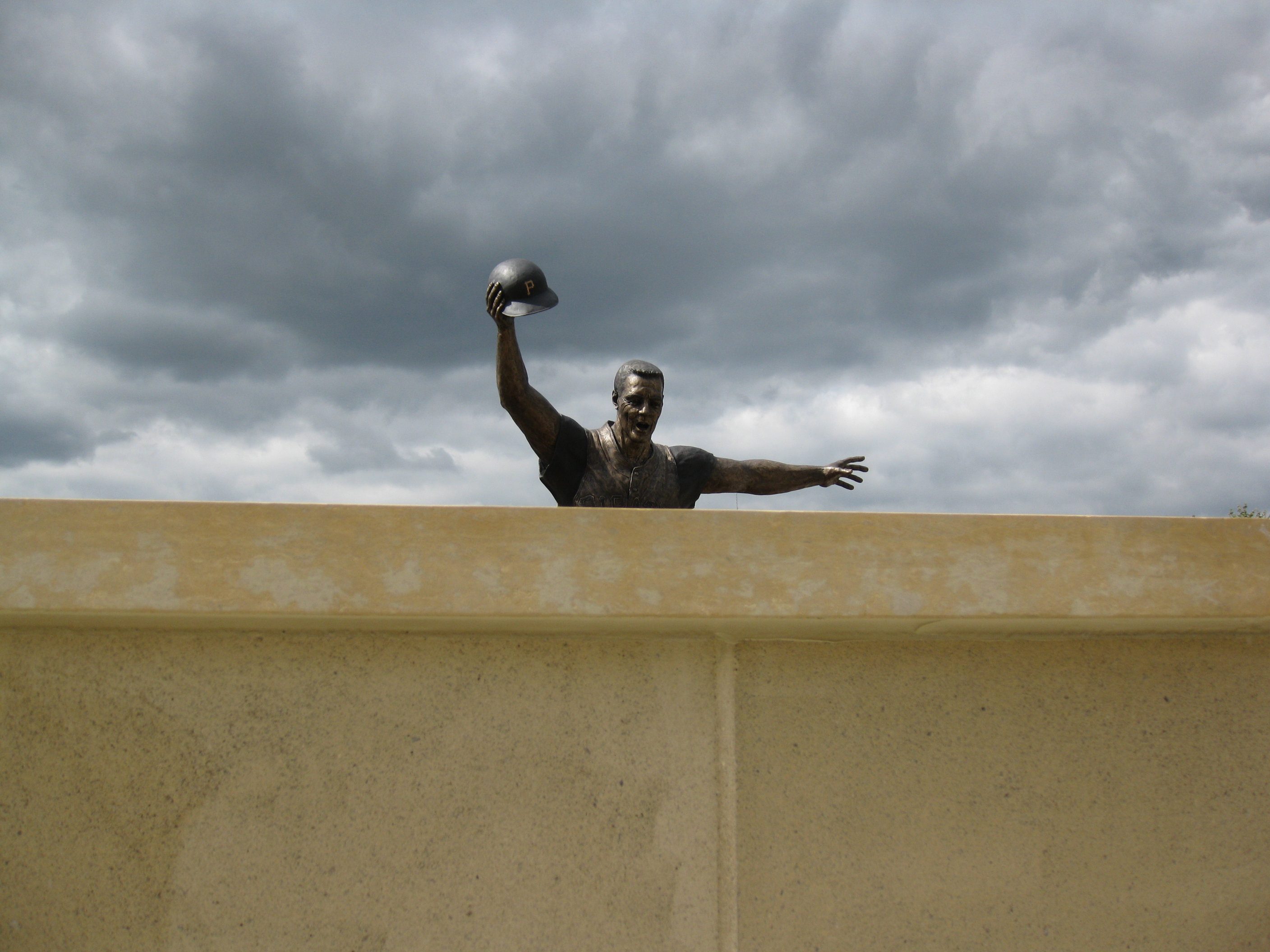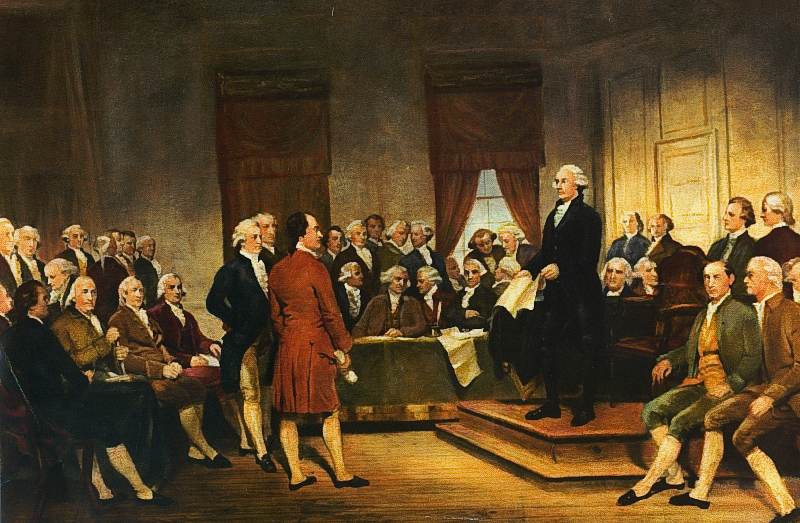A Reconquista of American Culture?

Something new must emerge from the wreckage of the Flight 93 election.
This is the second post in an ongoing series of reports and reflections from abroad by Jeremy Carl. Read the first here.–Eds.
Hunter Hearns has offered a grim but accurate assessment of the results of the Flight 93 election. Despite the sincere efforts of many talented people (undermined in part, it should be said, by a number of GOP establishment hacks and Never Trumpers), the conservative storming of the cockpit has failed to prevent the plane of state from crashing.
Indeed, Hearns indirectly shows the true depth of liberal cultural hegemony in that, even writing for a conservative publication, under the regime of a conservative President, he feels that he must utilize a pseudonym.
As he notes in the article’s damning opening, Republicans have controlled the presidency for 32 out of the last 52 years, appointed 15 of the last 19 Supreme Court justices, and controlled much of Congress for the last 25 years as well.
“For a party to be so remarkably successful politically while losing on practically every issue requires a deep rethinking of where things have gone wrong.”
Hearns is correct that on virtually every issue, the American Right is in retreat and what is considered “conservative” today would have been considered radical just a decade or two ago. We can imagine, without too much difficulty, an establishment GOP politician or writer penning “The Conservative Case for Transgender Throuples,” just a few years hence in some nominally “conservative” publication.
But Hearns wisely does not simply lay the blame for these defeats at the feet of Trump—instead, he lambasts conservatives’ poor to non-existent efforts to win over the organs of cultural transmission (media, Hollywood, schools and universities, etc.) that influence the preferences of high-status individuals from whom average citizens, too busy to involve themselves with politics, determine their own views. And he points out, correctly, how anomalous this particular affectation of the American Right is, observing that “Practically every significant movement—whether ancient or modern, religious or secular, totalitarian or liberal—knew that to succeed in the long run it needed to gain control of the institutions that manufacture public opinion.”
There are clearly echoes of James Burnham in Hearns’s critique, and even more of Burnham’s disciple Sam Francis, who was one of the Right’s most powerful and prescient theorists (as even mainstream moderates such as David Brooks acknowledged) before his racialist preoccupations ultimately marginalized him. In Francis’ essay Beautiful Losers: The Failure of American Conservatism, written almost three decades ago, he critiqued conservative historian Richard Weaver’s classic work Ideas Have Consequences (1948), taking deadly aim at Weaver’s legions of followers in the mainstream conservative movement who have stressed the primacy of pure ideas over power relations.
Some ideas have more consequences than others, and those that attach themselves to declining social and political forces have the least consequence of all…. If the American right can disengage from the left and its regime, it can assume leadership of a cause that could be right as well as victorious. But it can do so only if it has the wit and the will to disabuse itself of the illusions that have distracted it almost since its birth.
Or, as Hearns notes bluntly:
“The question of why conservatives lose thus becomes a very simple one. Liberals have the megaphone and conservatives do not.”
Consistent with his understanding of the importance of the megaphone, Hearns correctly recognizes online speech as an “existential” (his words) issue for conservatives. In 2016, the Right built its own megaphone online. Conservatives were able to route around and mock the absurdity of discourse-controlling elites, and their efforts played a key role in electing Trump. But since 2016, as Hearns notes, the left, which understands power even as it fails with policy, has worked hand-in-glove with woke tech to smash that megaphone.
None of the foregoing, of course, suggests that the content of conservative ideas is irrelevant or unimportant—merely that conservatives must pay less attention to the pure content of their ideas and much more attention to the social and political context in which those ideas are promulgated.
Beating Back the Hordes
But even if the Flight 93 election has crashed, all is hardly lost.
I recently saw a source of inspiration for what a rebirth might look like in an entirely unexpected location. A few weeks ago, at the behest of my precocious seven-year-old, we drove eight hours from our then “home” in Barcelona to the tiny village of Covadonga tucked in the foothills of the Picos de Europa in Asturias, Spain.
It was here that in approximately the year 722, ten years before Charles Martel won his famous victory in the Battle of Tours that halted the Muslim invasion of France, the Visigothic nobleman Don Pelayo (Pelagius) defeated a much larger Muslim force. It was a tiny battle, seemingly inconsequential at the time, but one that ultimately marked the beginning of what would be an almost 800-year quest to end Muslim rule in Spain. Pelayo’s victory established a small beachhead to which the remains of the Visigothic Christian leadership would flee.
At the beginning of the Battle of Covadonga, the vastly larger Muslim force initially called on Pelayo to surrender, even sending the local Bishop Oppa (The early medieval Never Trump/GOP establishment equivalent) to attempt to convince Pelayo of the futility of standing against the Muslims while promising him prosperity as a Muslim vassal.
Pelayo, according to later chroniclers, said this to the bishop in response:
“Have you not read in the divine scriptures that the church of God is compared to a mustard seed and that it will be raised up again through divine mercy?”
He then forthrightly refused to accept Muslim rule.
His forces fought guerilla warfare from the hills that they knew so well and trounced the Muslim invaders. Inspired by Don Pelayo’s leadership and bravery though badly outmanned, the local Asturian villagers, previously quiescent and seemingly unarmed, emerged with their hidden weapons and killed many of the retreating Muslim fighters. From this victory grew the Kingdom of Asturias, the first Christian kingdom to emerge in Spain after the Muslim conquest in 711.
Today the cave in which Pelayo hid, and in which he was subsequently buried, are a sacred shrine to the Virgin Mary. A massive cathedral rests above it, and tourists and pilgrims come each year to visit both in huge numbers, where they provide spiritual inspiration.
Reclaiming America
Having lost the commanding heights of culture as Hearns amply documents, The Right needs a cultural Covandonga from which it can emerge to reclaim America. It may spring from a seemingly inconsequential victory, as Pelayo’s seemed at the time. Some on the Right lamenting America’s decline have taken their inspiration from Charles Martel, who drove the infidels back from the gates, but this is a fundamental misreading of the needs of our moment.
Martel merely held off the enemies of the West, preserving what was already won. At Covadonga, Don Pelayo took the first decisive step to reclaim what had been lost. But if conservatives are to win the culture, we must understand that we emerge from the wreckage of the Flight 93 election with the strategic position of Don Pelayo, not Charles Martel.
Or, As Francis observed in Beautiful Losers,
Abandoning the illusion that it represents an establishment to be “conserved,” a new American right must recognize that its values and goals lie outside and against the establishment and that its natural allies are not in Manhattan, New Haven, and Washington but in the increasingly alienated and threatened strata of Middle America.
Indeed, this is true, but one should add that those Americans will need leadership from intellectuals and other leaders within the corridors of power who are brave enough to stand up against the Left’s cultural tyranny. It is to these people that Claremont can speak when it refers to “Recovering the American Idea”—understanding, as Don Pelayo did, that something has been lost and must be recaptured.
There is a saying in Asturias: Asturias es España y lo demás tierra conquistada.
“Asturias is Spain—the rest is conquered territory.” That is to say, the true Spain always existed in Asturias even when it lay only hidden and outnumbered in the remote caves of Covadonga.
Institutions such as Claremont represent this Covadonga in the mountains: perhaps outnumbered and outgunned, but willing to fight smartly and fiercely from our redoubt, picking up allies along the way and targeting our message to talented people marginalized by the increasingly tyrannical and hysterical reign of the left.
But the first real step toward victory requires us to disabuse ourselves of our comforting illusions and acknowledge that America is today a culturally conquered territory.
The American Mind presents a range of perspectives. Views are writers’ own and do not necessarily represent those of The Claremont Institute.
The American Mind is a publication of the Claremont Institute, a non-profit 501(c)(3) organization, dedicated to restoring the principles of the American Founding to their rightful, preeminent authority in our national life. Interested in supporting our work? Gifts to the Claremont Institute are tax-deductible.
Root, root, root for the electors. If they don't win it's a shame.
Part I: Unfettered reason cannot conserve anything.







